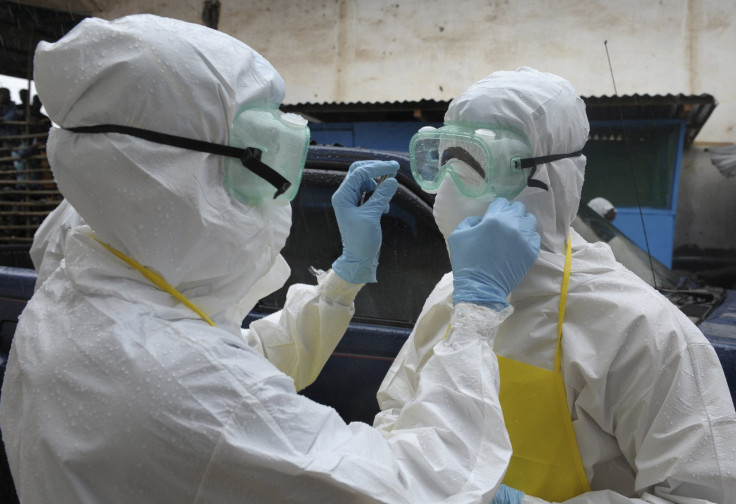WHO Closes Ebola Testing Lab In Sierra Leone After Health Worker Gets Infected

The Ebola outbreak plaguing West Africa has caused widespread unrest as health care workers struggle to treat patients and outpace the rate of infections, while looters and other armed men attack clinics. And on Tuesday, the World Health Organization (WHO) said it had to close a lab in Sierra Leone after a health worker became infected.
The testing laboratory, one of only two in Sierra Leone, was located in the two of Kailahun, which is close to the border of Guinea. It was closed after a Senegalese epidemiologist became ill with the virus, Reuters reported. “It’s a temporary measure to take care of our remaining workers,” WHO spokesman Christy Feig said. “After our assessment, they will return.”
But pulling health workers is becoming an increasing problem, which will likely result in a worsening outbreak. Just on Monday, WHO said in an update that a “high proportion of doctors, nurses, and other health care workers” had been infected. In all, 240 health workers had contracted the infection throughout the four afflicted countries — Sierra Leone, Guinea, Liberia, and Nigeria — and 120 had died.
“In many cases, medical staff are at risk because no protective equipment is available — not even gloves and face masks,” the organization said. “Even in dedicated Ebola wards, personal protective equipment is often scarce or not being properly used.” In addition to that, doctors are working overtime, compromising their immune systems through exhaustion, while also working in protective gear that gets especially hot in the tropical climate.
As of Monday, Kailahun was ground zero for Ebola in Sierra Leone, where there were 440 cases of Ebola, or nearly half of the country’s total. The epidemiologist, who is the first worker deployed by WHO to be infected, was sent to the clinic through the Global Outbreak Alert and Response Network, a collaboration between institutions like WHO, UNICEF, the Red Cross, and Doctors Without Borders. He’s currently being treated in Sierra Leone’s other clinic in Kenema, as WHO determines how to get him out of the country.
Since the virus first broke out in March, an estimated 2,615 cases have been reported, with 1,427 deaths. However, WHO warned that there could be “shadow zones” where infected patients are hiding among families. “As Ebola has no cure, some believe infected loved ones will be more comfortable dying at home,” WHO said in a statement, according to Al Jazeera. “Others deny that a patient has Ebola and believe that care in an isolation ward — viewed as an incubator of the disease — will lead to infection and certain death.”
Besides the four countries in West Africa, a separate outbreak was recently announced in the Democratic Republic of Congo, where 13 people have died so far.



























